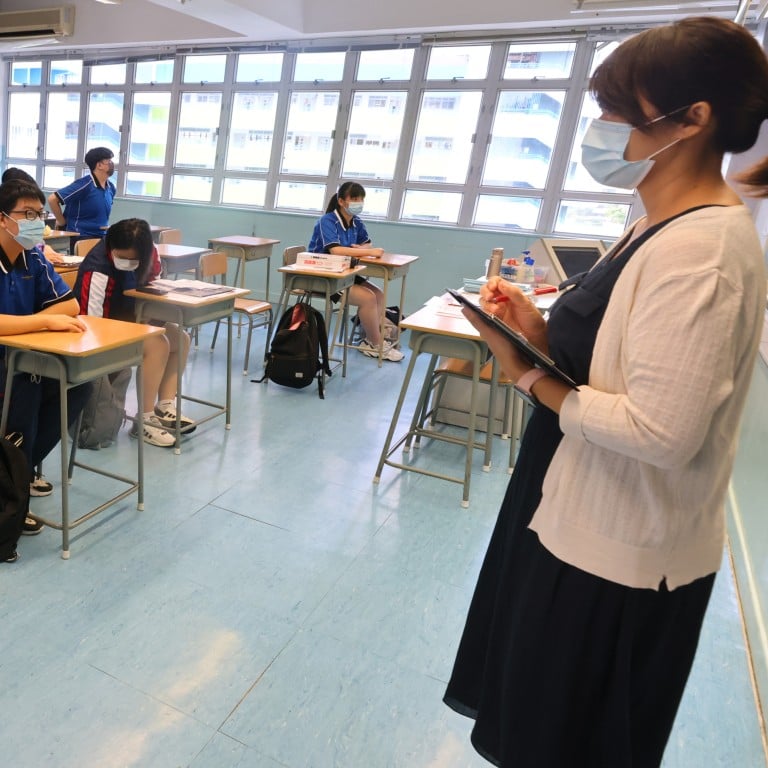
Letters | Hong Kong assessing English teachers with IELTS shouldn’t be controversial
- Readers discuss how English teachers are assessed in the city, a wonderful Ramadan experience, and interest rate concerns
The replacement of the local Language Proficiency Assessment (LPA) with the International English Language Testing System (IELTS) from September this year raises questions about the impact on non-English major teachers who would like to switch to teaching English or those teaching other subjects in local schools with English as the medium of instruction.
Although the goals of LPA and IELTS are closely related, the tests are functionally different from each other. The former “assesses candidates’ proficiency” in the English language for teaching the subject in schools, whereas the latter assesses individuals’ ability to communicate in English effectively. Both are language proficiency tests, but the former focuses on pedagogical language skills while the latter focuses on academic (IELTS Academic) and practical language skills (IELTS General Training).
Two distinctive components of LPA that are omitted from IELTS are classroom language assessment and correction and explanation of errors in student compositions, which obviously target the specific requirements for language teaching. An example from the briefing session for 2024 LPA (English language) is of a candidate being required to detect the one error in the item “in this six months in Australia” and explain specifically that the writer “should replace the singular determiner/demonstrative adjective/pronoun ‘this’ with ‘these’ because ‘months’ is plural”. Knowledge of metalanguage such as grammatical terminology is essential for this paper.
It has been pointed out that English teachers still have to take classroom language assessment and that subject knowledge has been included in postgraduate diploma in education programmes offered by local universities, which will compensate for the missing components in IELTS. The shift to IELTS is also expected to be more cost-effective and efficient for both government and teachers.
IELTS test scores are generally accepted as proof of English language ability at universities and workplaces around the world. The results, which are only valid for two years, are at best a testimony to one’s English proficiency level in general. The proposed requirements for both teachers and panel chairs should not be controversial as they are not planning to study in or migrate to an English-speaking country, which may require language skills that are commonly used in academic settings, social situations or workplace environments.
Andy Seto Wood-hung, Shau Kei Wan
Kowloon Mosque offered wonderful Ramadan experience
I am writing to express my heartfelt appreciation for the exceptional Ramadan experience provided by the Kowloon Mosque in Tsim Sha Tsui. As a dynamic cosmopolitan city, Hong Kong prides itself on its diverse population living and working harmoniously, and the efforts of both the Hong Kong and central governments with regard to all ethnic minorities, including the Muslim community, are commendable.
The mosque also welcomed women for iftar. We were seated separately in the ladies’ hall, where we could mingle with women of various nationalities. Hong Kong stands out here; in many countries, iftar in mosques is arranged for men only.
The iftar committee, composed of people of different nationalities, works tirelessly to prepare for and manage the event, ensuring that the attendees are provided with traditional delicacies such as congee, samosas and dates, as well as water and other items of the day.
The experience is not just spiritual but also social, as special guests from the government, consulates, charities and distinguished members of other communities visit and experience the warm and welcoming atmosphere.
The staff and volunteers at the mosque go the extra mile to ensure that everyone feels welcomed and taken care of during their visit. Therefore, we urge all those who visit the mosque to recognise and appreciate the selfless service provided by the mosque’s management.
May this spirit of unity, kindness and compassion continue to flourish in Hong Kong, strengthening the bonds among all communities.
Fathima Ifaza, Ho Man Tin
What if interest rates don’t drop?
Rishi Teckchandani, Mid-Levels

